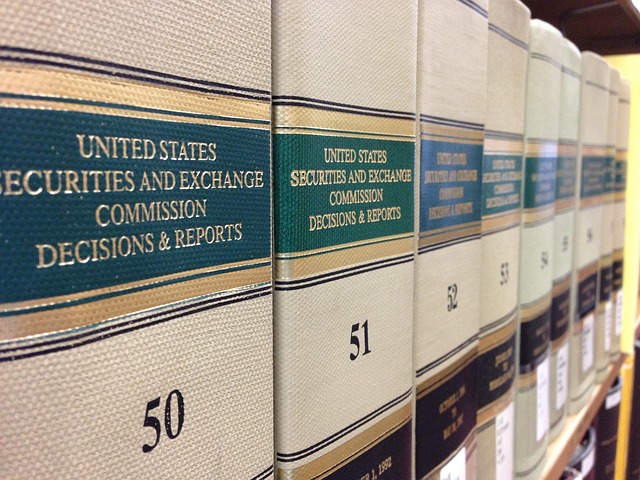Co-ownership property disputes are complex legal battles requiring careful navigation through financial and emotional aspects. Litigation Support Services act as specialists, using advanced techniques to uncover evidence and craft compelling arguments. Expert witnesses and forensic accountants provide unbiased insights into contract interpretations and asset appraisals. Specialized legal professionals offer tailored strategies, including mediation, arbitration, and litigation, to resolve high-stakes cases efficiently while preserving relationships. Ultimately, the goal is equitable property division or peaceful resolutions that respect co-owners' rights.
In the complex landscape of co-ownership property disputes, efficient resolution is paramount. This article delves into the critical role of litigation support services in navigating these intricate legal battles. We explore strategies and solutions for co-owners, highlighting the significance of expert witnesses and forensic accounting in shaping case outcomes. Through comprehensive insights and real-world case studies, we present a testament to how specialized services can revolutionize property dispute litigation, offering both efficiency and accuracy. Understanding these legal options is key to successful resolution, providing clarity amidst the chaos.
- Understanding Co-Ownership Property Disputes: A Comprehensive Overview
- The Role of Litigation Support Services in Resolving Complex Cases
- Exploring Legal Options for Co-Owners: Strategies and Solutions
- How Expert Witnesses and Forensic Accounting Aid in Property Dispute Litigation
- Case Studies: Successful Litigation Support Services in Action
Understanding Co-Ownership Property Disputes: A Comprehensive Overview

Co-ownership property disputes are complex legal issues that arise when two or more parties have a shared interest in a piece of property. These disputes often involve intricate financial and emotional aspects, requiring careful navigation through various legal options. Understanding the dynamics of co-ownership is crucial for an effective resolution, ensuring fairness and justice for all involved parties.
In such cases, it’s essential to explore different avenues to resolve the conflict. The investigative and enforcement process plays a pivotal role in uncovering evidence, verifying claims, and determining the rightful ownership. This comprehensive approach involves meticulous research, examination of legal documents, and sometimes even mediation or arbitration to reach a mutually agreeable solution. Additionally, considering the impact on philanthropic and political communities can offer valuable insights, as these disputes often have broader implications that extend beyond individual interests. While some outcomes may lead to a complete dismissal of all charges, the primary goal is to achieve an equitable division of property or a peaceful resolution that respects the rights and contributions of each co-owner.
The Role of Litigation Support Services in Resolving Complex Cases

In the world of complex legal matters, especially high-stakes cases such as co-ownership property disputes, Litigation Support Services play a pivotal role in navigating intricate legal landscapes. These services are designed to provide crucial assistance to both plaintiffs and defendants, ensuring that every angle of a case is explored and considered. By employing advanced techniques and technologies, litigation support specialists aid in uncovering relevant evidence, analyzing complex data, and presenting compelling arguments, thereby enhancing the overall legal strategy.
In these demanding situations, where the stakes are high and outcomes can significantly impact lives and businesses, the expertise offered by these services becomes invaluable. They help in avoiding indictment by meticulously scrutinizing facts and identifying legal options that might otherwise be overlooked. Across the country, many successful resolutions of intricate co-ownership property disputes have been attributed to the strategic insights and comprehensive support provided by litigation support professionals.
Exploring Legal Options for Co-Owners: Strategies and Solutions

In the event of a co-ownership property dispute, exploring legal options becomes paramount. Co-owners often find themselves at odds over decisions regarding the property’s use, maintenance, or sale—issues that can escalate into complex legal battles. Understanding the available avenues is crucial for resolving such conflicts amicably or effectively navigating high-stakes cases. The key lies in recognizing different strategies tailored to specific situations, ensuring fair outcomes for all parties involved.
Legal professionals specializing in co-ownership disputes offer valuable insights and solutions. They guide clients through various legal options, from mediation and arbitration to litigation. In complex scenarios involving white collar and economic crimes or those that impact philanthropic and political communities, these specialists play an indispensable role. By employing creative strategies and leveraging relevant laws, they help resolve disputes efficiently, minimizing potential losses and preserving the co-ownership relationship.
How Expert Witnesses and Forensic Accounting Aid in Property Dispute Litigation

In property dispute litigation involving co-ownership, expert witnesses and forensic accounting play pivotal roles in unravelling complex financial entanglements. These professionals bring a wealth of specialized knowledge to the table, offering insights that can significantly sway legal decisions. Expert witnesses, often with extensive industry experience, provide clear and unbiased explanations of intricate matters. Whether it’s interpreting contracts, appraising assets, or analyzing market trends, their testimony helps juries and judges comprehend nuances that might otherwise be obscured.
Forensic accounting, a discipline focused on financial investigations, is invaluable in high-stakes cases involving white-collar and economic crimes. These accountants employ meticulous techniques to uncover hidden assets, detect fraudulent activities, and reconstruct financial histories. Their expertise aids in avoiding indictment by providing a clear financial picture, thereby helping legal teams navigate the complexities of co-ownership property disputes and explore viable legal options.
Case Studies: Successful Litigation Support Services in Action

In the realm of complex legal battles, particularly co-ownership property disputes, Litigation Support Services have emerged as game changers. These specialized services offer a myriad of solutions tailored to help clients navigate intricate legal labyrinths and achieve extraordinary results. By providing expert insights and strategic guidance, they ensure that every angle is explored and all available legal options are presented, from general criminal defense strategies to specific property resolution tactics.
Successful case studies highlight the impact of these services. For instance, in a high-profile co-ownership dispute, the comprehensive support led to a favorable outcome for his clients, securing a fair share of the property while minimizing potential legal risks. This demonstrates how litigation support can revolutionize legal processes, ensuring that justice is not only sought but also achieved with precision and effectiveness.
In navigating complex co-ownership property disputes, the role of litigation support services cannot be overstated. By leveraging expert witnesses, forensic accounting, and comprehensive strategies outlined in this article, co-owners can effectively explore legal options and resolve disputes efficiently. These services act as a symphony of support, guiding parties through the intricate landscape of property law, ultimately fostering fair and swift resolutions. Understanding these litigation support services equips folks with the knowledge to navigate their legal journey with confidence, ensuring a harmonious outcome in even the most challenging co-ownership property cases.






